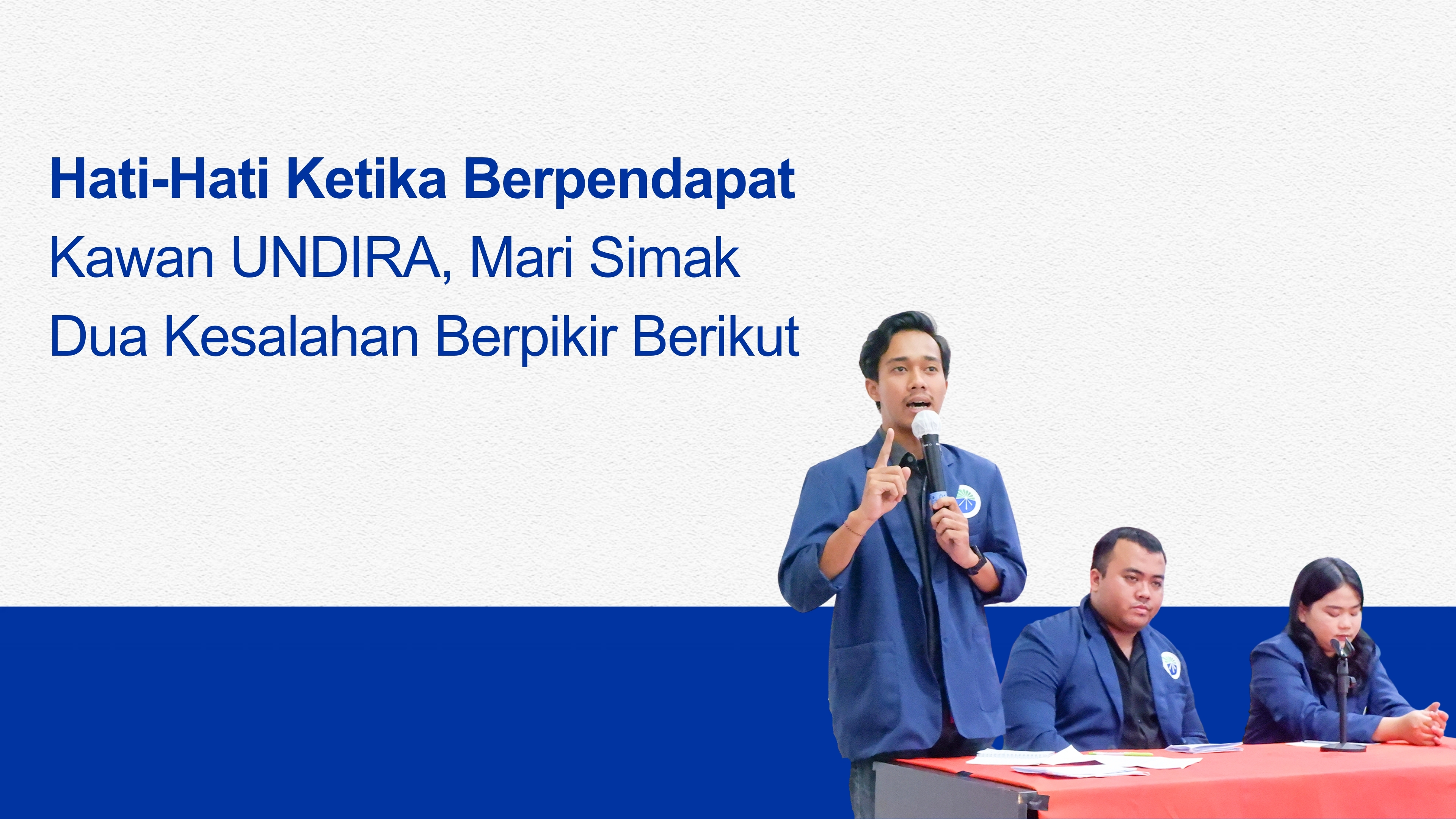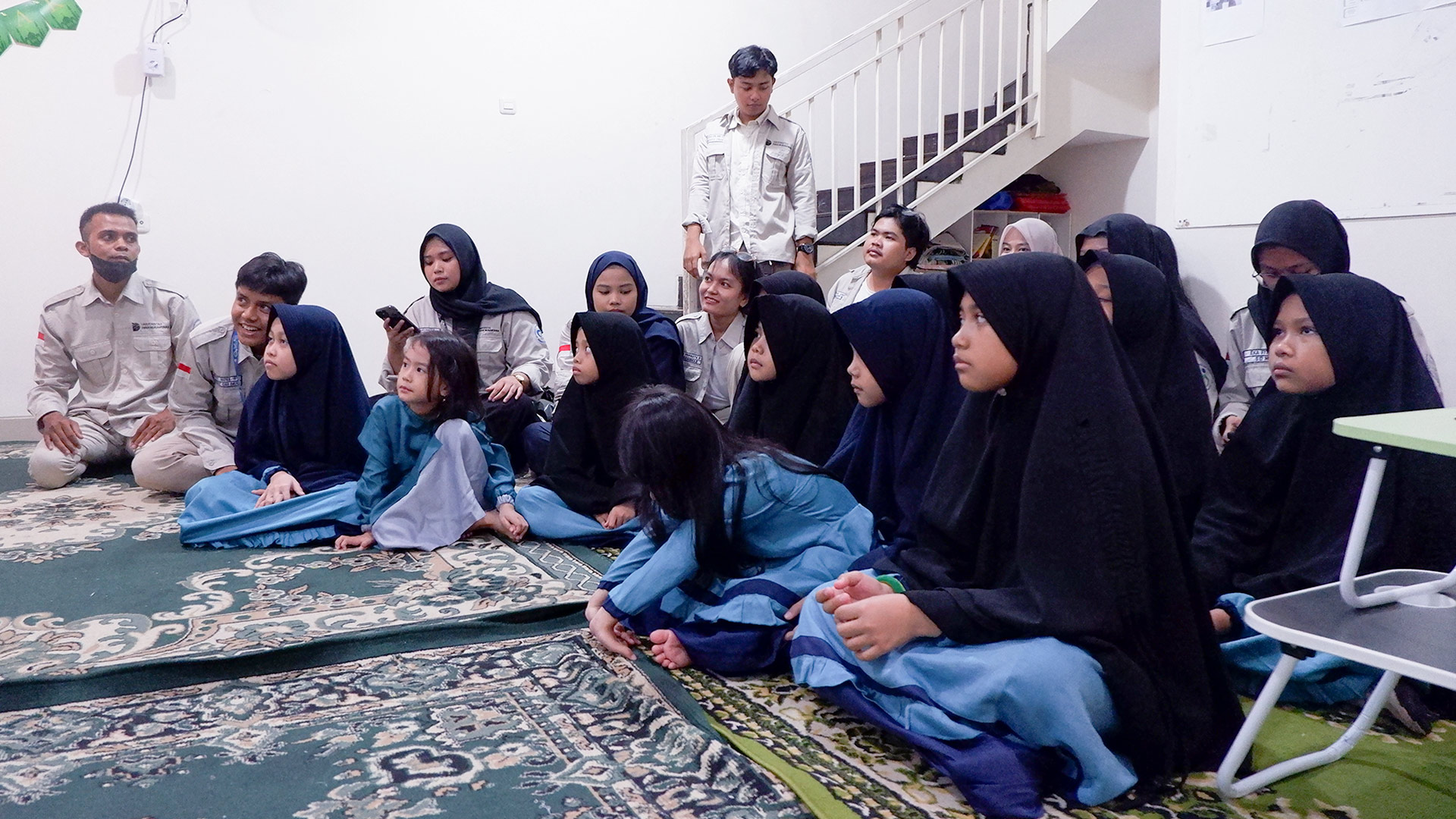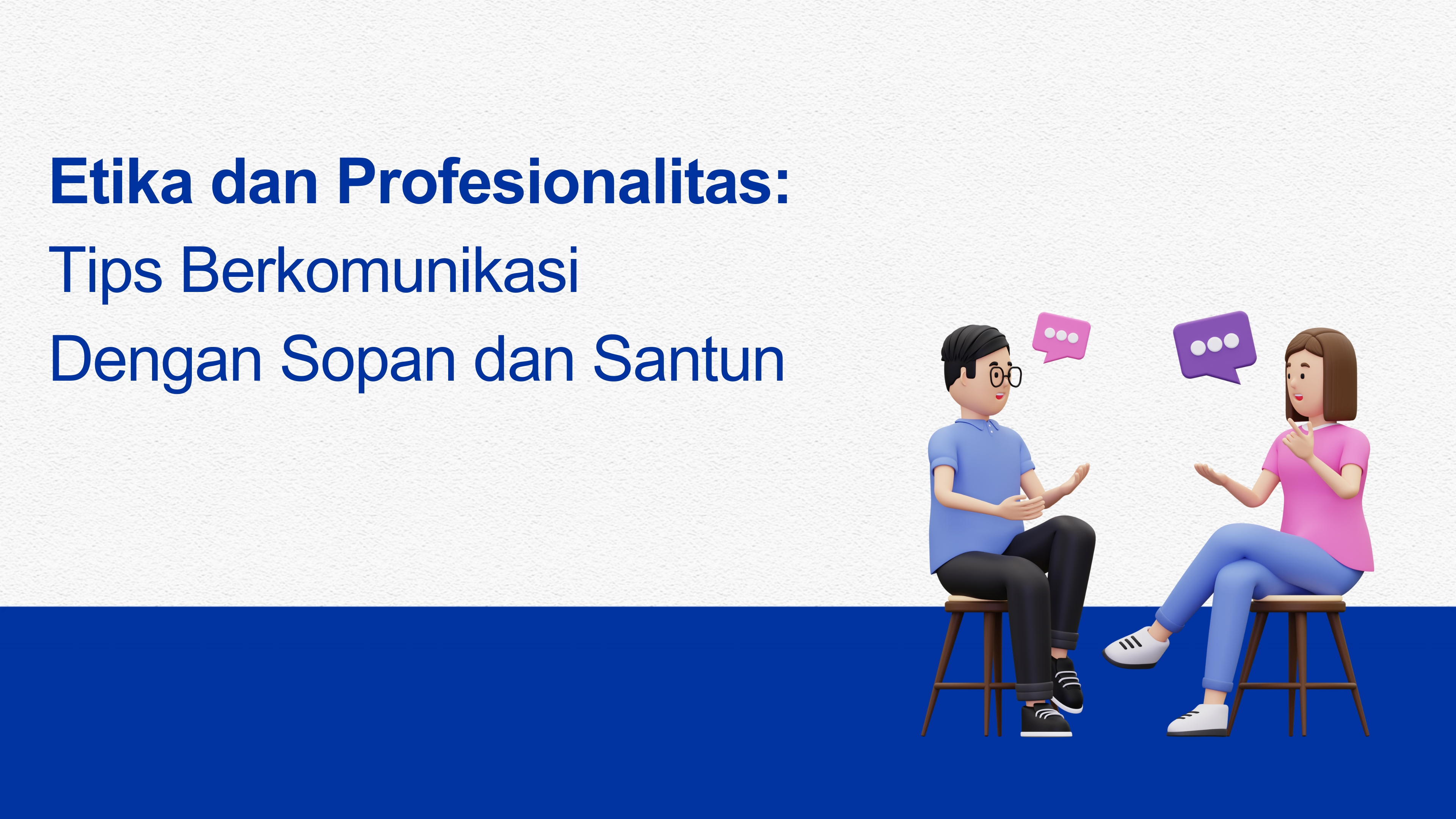Be Wary When Voicing Your Opinions, UNDIRA Friends — Let’s Look at These Two Common Thinking Errors

Dear UNDIRA colleagues, debate is not merely a platform for exchanging arguments, but also a means of sharpening critical thinking skills, expanding academic horizons, and building intellectual networks. In a healthy discussion environment, we can exchange ideas and cultivate a more open mindset.
However, to produce a high-quality debate, one must rely on a logical, data-driven framework. Unfortunately, as often happens in daily life, emotions sometimes interfere in the thinking process. This can disrupt clarity of thought and undermine the logical flow that should serve as the foundation of any argument.
In the academic world, such thinking errors are known as logical fallacies. Two types of fallacies most commonly found in discussions among students and lecturers alike are Ad Hominem and Ad Verecundiam. Understanding both is crucial so that we can engage in objective, rational, and ethical discussion.
Ad Hominem is a fallacy in which the attacker targets the opponent’s character or personal background rather than the substance of their argument. The focus lies on the individual—not the idea being presented. Not only is Ad Hominem highly prejudiced, but it also comes across as unprofessional and selfish. One example of Ad Hominem is:
A: “In my opinion, public transportation needs to be improved.”
B: “You only say that because you can’t afford a car!”
Instead of logically responding to A’s idea, B launches a baseless personal attack. Such statements not only weaken the quality of the discussion, but also signal a lack of professionalism.
Ad Verecundiam, on the other hand, occurs when someone assumes a statement is true simply because it is made by an expert—without engaging in critical analysis of the content itself. This fallacy relies on authority rather than logic or evidence. An example would be:
A: “Crypto has a high value, so it’s better to invest in it. Timothy Ronald even said so on YouTube.”
This statement is dangerous because it generalizes and ignores the fact that each individual has different financial conditions and goals. Relying on an expert opinion without comprehensive understanding can be misleading—especially if the other party approaches the issue from multiple perspectives.
Dear UNDIRA colleagues, a high quality discussion does not only demonstrate intellectual prowess—it reflects maturity, respect, and appreciation for diverse perspectives.
Some concrete steps can be taken to create a healthy debate space, such as controlling emotions during discussion, enriching knowledge through reading, and fostering empathy by recognizing and respecting our counterparts’ backgrounds. Mutual respect is the main foundation for constructive communication in academic settings.
At Universitas Dian Nusantara (UNDIRA), the values of Visionary, Integrity, and Professionalism serve as the guiding principles in building student character. UNDIRA is committed not only to producing graduates who excel academically, but who are also prepared to face the challenges of the Industry 5.0 era, which demands synergy between intellectual capability and ethics. Remember, UNDIRA colleagues — a true academic is not only intelligent, but also wise, maintaining the dignity of knowledge through professionalism and integrity.
(Kornelia Johana Dacosta / Humas UNDIRA)
Press Contact :
Biro Humas & Sekretariat Universitas Dian Nusantara
Facebook : www.facebook.com/undiraofficial
Instagram : www.instagram.com/undiraofficial
Twitter : www.twitter.com/undiraofficial
www.undira.ac.id
Other

UNDIRA Students Achieve High Achievement in Independent Study Program with PT TIM Corp and AWS Indonesia
Read more
Emphasizing Social Solidarity, HIMAKOM UNDIRA Students Organize a Sharing Activity with the Local Community
Read more
Etiquette and Professionalism: Few tips to Speaking with Courtesy and Respect
Read more
Campus Tanjung Duren
Jln. Tanjung Duren Barat II No. 1
Grogol, Jakarta Barat. 11470
Campus Green Ville
JIn. Mangga XIV No. 3
Campus Cibubur
Jln. Rawa Dolar 65
Jatiranggon Kec. Jatisampurna, Bekasi. 17432







